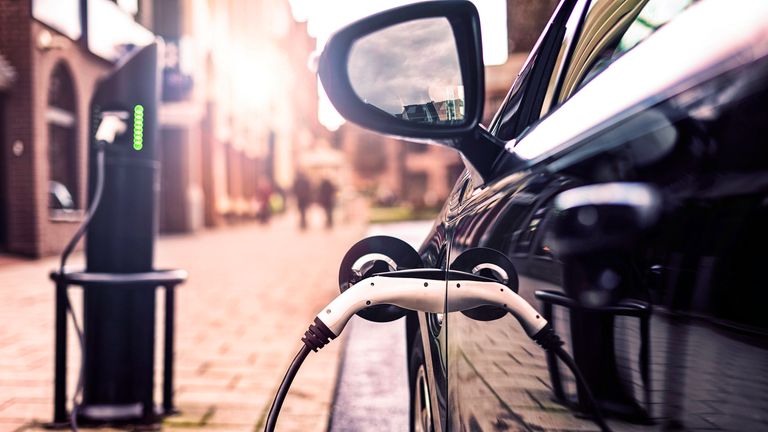The UK car industry has declared it is “recovering” after production last month rose by almost a third compared to a year ago.
The Society of Motor Manufacturers and Traders (SMMT) reported a 31.6% hike in output during July versus the same month in 2022.
It said the 76,451 vehicles made represented a sixth consecutive month of growth.
The figure, it said, was driven by production of high-tech hybrid electric, plug-in hybrid and battery electric vehicles.
They accounted for almost two in every five cars made in July.
Production for both the domestic and export markets rose, with 85% of the total being shipped overseas to destinations such as China, the US and EU nations.
The SMMT said the performance marked further progress in the industry’s efforts to recover volumes in the wake of COVID-linked disruption, including crippling global chip shortages.
While they are easing, plant closures and shifts towards electrified vehicles by manufacturers have also stunted the pace.
Vehicle output remains 30% down on pre-pandemic levels.
The SMMT has previously revealed research showing it could take five more years for a return to annual production of one million cars or more.
It expects UK factories to produce 860,000 cars this year, 11% higher than in 2022.
But headwinds to growth remain, including a lack of domestic battery provision, high energy bills and the effects of higher inflation on household and business customers alike.
Those challenges are looming large in the mirror at a time when the clock is ticking in the UK to the 2030 ban on the sale of new cars powered by diesel and petrol.
Read more:
Tata confirms plans for UK battery gigafactory
Best July for new car sales in three years, SMMT says
SMMT chief executive, Mike Hawes, said of the improved progress to date: “Six months of growth shows that British car production is recovering and, with electrified models increasingly driving volumes, the future is more positive.
“Recent investment announcements have undoubtedly bolstered the sector but global competition remains tough.
“If we are to attract further investment and produce the next generation of zero emission models and technologies, we need a coherent strategy that builds on our strengths and supports all aspects of advanced automotive manufacturing.”

